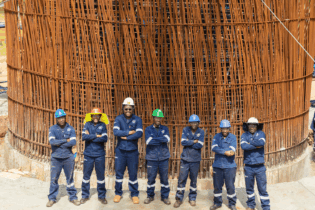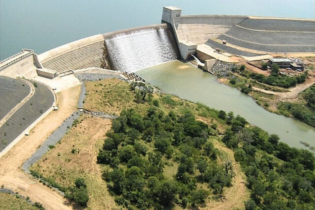Q. With regard to water and wastewater applications, what is CSV Water’s core business function?
A.CSV Water Consulting Engineers is a company of engineers and other professionals who focus on the science and engineering of water. Specific areas of focus are water treatment and wastewater treatment, bulk services including pipelines and pump stations, civil services, which include water and sewage reticulation systems, and operation of water and wastewater infrastructure, and institutional support such as Blue/Green Drop related services.CSV delivers full civil, mechanical and electrical consulting engineering services in its areas of focus. These services range from the traditional feasibility studies, design, tender compilation and project management, to specialist studies and audits. In addition to this, we are able to assist our clients with the development of operations and maintenance plans for their plants and infrastructure. We focus on the design and optimisation of treatment processes, reactors, pump stations, pipelines and distribution networks. CSV has developed a number of partnerships to assist it with expertise outside of its focus areas, which includes structural design and geotechnical engineering. Q. How is CSV involved in the Blue and/or Green Drop Awards? A. Five of our personnel did the training offered by the Department of Water Affairs (DWA) and are accredited to act as assessors for the programme. Being in contact with the various municipalities during the audits, we meet a number of key people and get to physically assess plants, which in some way impress the assessors on various levels. Apart from the points allocated to the water service authorities (WSAs) and providers as per the Blue/Green Drop scorecards, which forms the core of the Blue/Green Drop Awards, these outstanding people and plants are also nominated for other categories in the awards by the assessors. It is very satisfying to see the hard work done by the WSAs being valued in this manner. Q. Briefly explain the work undertaken with regard to these awards. A. Our responsibility as lead assessors for the Blue/Green Drop process is to ensure that we are familiar with the criteria against which the municipalities are measured, and to maintain an objective view in assessing the performance against these criteria. We subsequently provide feedback to these municipalities on areas where they can improve. Depending on the number of systems managed by a municipality, and its preparedness, an initial assessment can take up to a day in sieving through all available data. This process is hugely aided by the internet-based Blue/Green drop system designed by DWA that captures available information from the municipalities. Following such a desktop based study, we visit some of the plants to physically do a check on the operations and design of the works, while also providing a score to these plants based on a checklist. Consolidation of all the data and scoring of the audit panel members is then done after the score sheets are provided to DWA for moderation. These moderated score sheets are later send to the municipalities to prepare them for the final assessment during which the focus of the assessment team will only be on issues not resolved or requiring attention.Q. What is your view on the Blue and Green Drop Certification process? Are the regulations set by the DWA within reason? How has this certification improved water and wastewater networks?
A. I think it is an excellent tool to measure the commitment of municipalities to providing water and sanitation services to their communities. It creates a baseline against which all municipalities in our country are able to measure themselves. The municipalities are awarded sufficient time to rectify aspects identified in the first round that required attention. If you closely look at all the criteria, it is fair to expect any municipality to have a water safety plan in place, monitor its final water quality, and measure that against permit and/or regulation requirements. It is fair to expect a municipality to employ suitably qualified personnel to conduct the work at site and to manage high capital assets according to business principles such as having an operational and capital budget and knowing the status of its assets. None of the criteria is unfair, although scoring full points at all of them is tough and this is where excellence and commitment is awarded. Scoring full points for final water quality is not something that comes automatically, but only achieved as a result of the ground work being done at the institution, such as having the right people, the right resources and the right attitude in place. Q. How has this certification improved water and wastewater networks within municipalities? A. Over the past four years, we as assessors have seen the improvement that the Blue/Green Drop programme has had on water and sanitation systems. It created awareness among individuals in municipalities on why water quality is so important as well as a general understanding on how to better manage resources in operating systems. Q. In the last three years, who have been CSV’s biggest clients in the water sector? A. CSV is very fortunate to serve the wide water fraternity in South Africa and is currently engaged in doing projects for the following institutions: Midvaal Water, Magalies Water, Umgeni Water, Bloem Water, Lepele Water, Sedibeng Water, DWA, a number of municipalities such as Westonaria, Steve Tswethe, JS Maroka, Tzaneen, City of Tshwane and Alfred Nzo where Blue/Green Drop related work such as process audits, water safety plans and risk abatement plans were conducted; Exxarro and other consulting firms such as Proplan.





